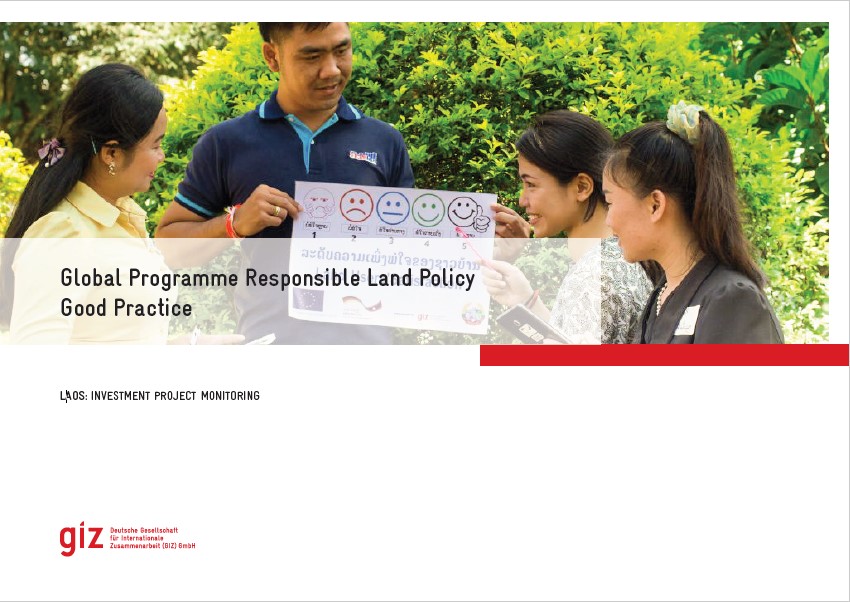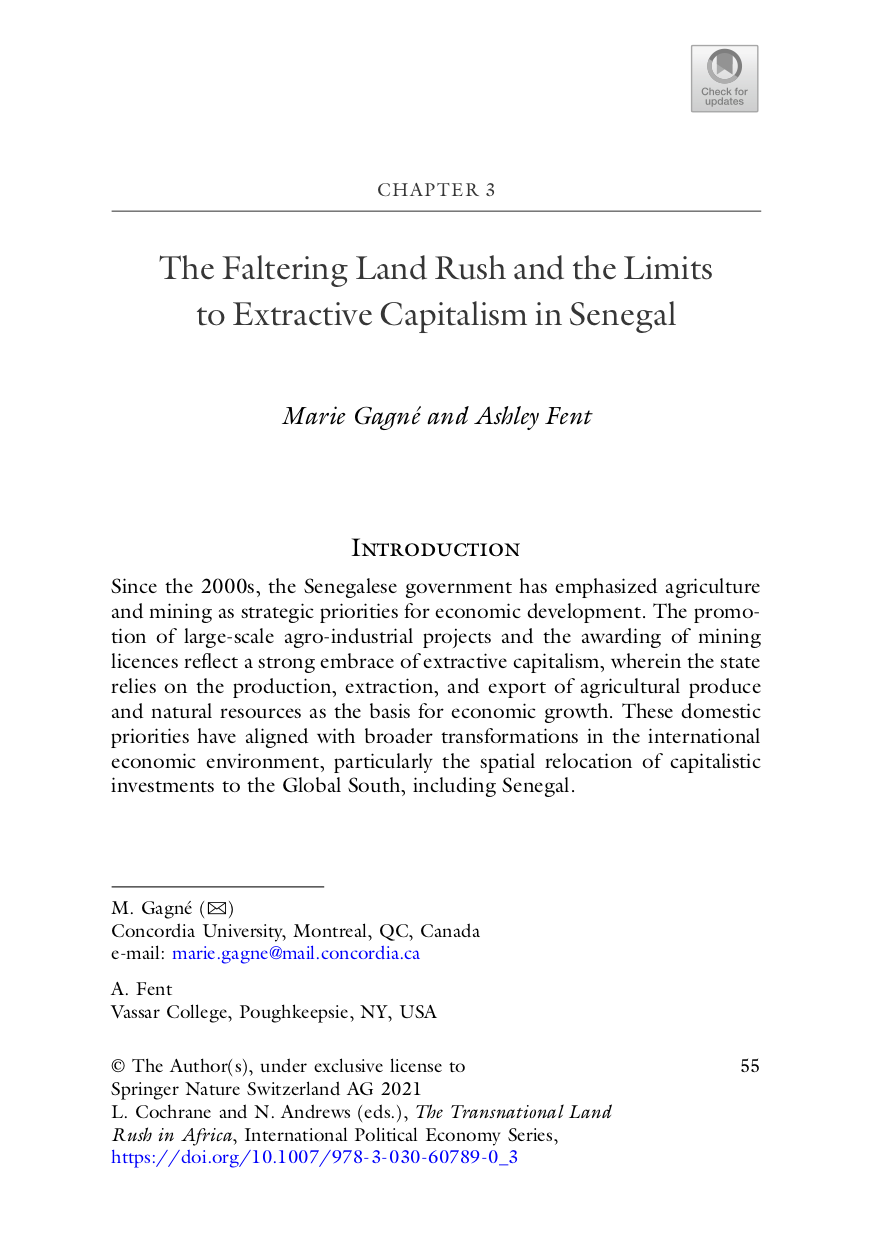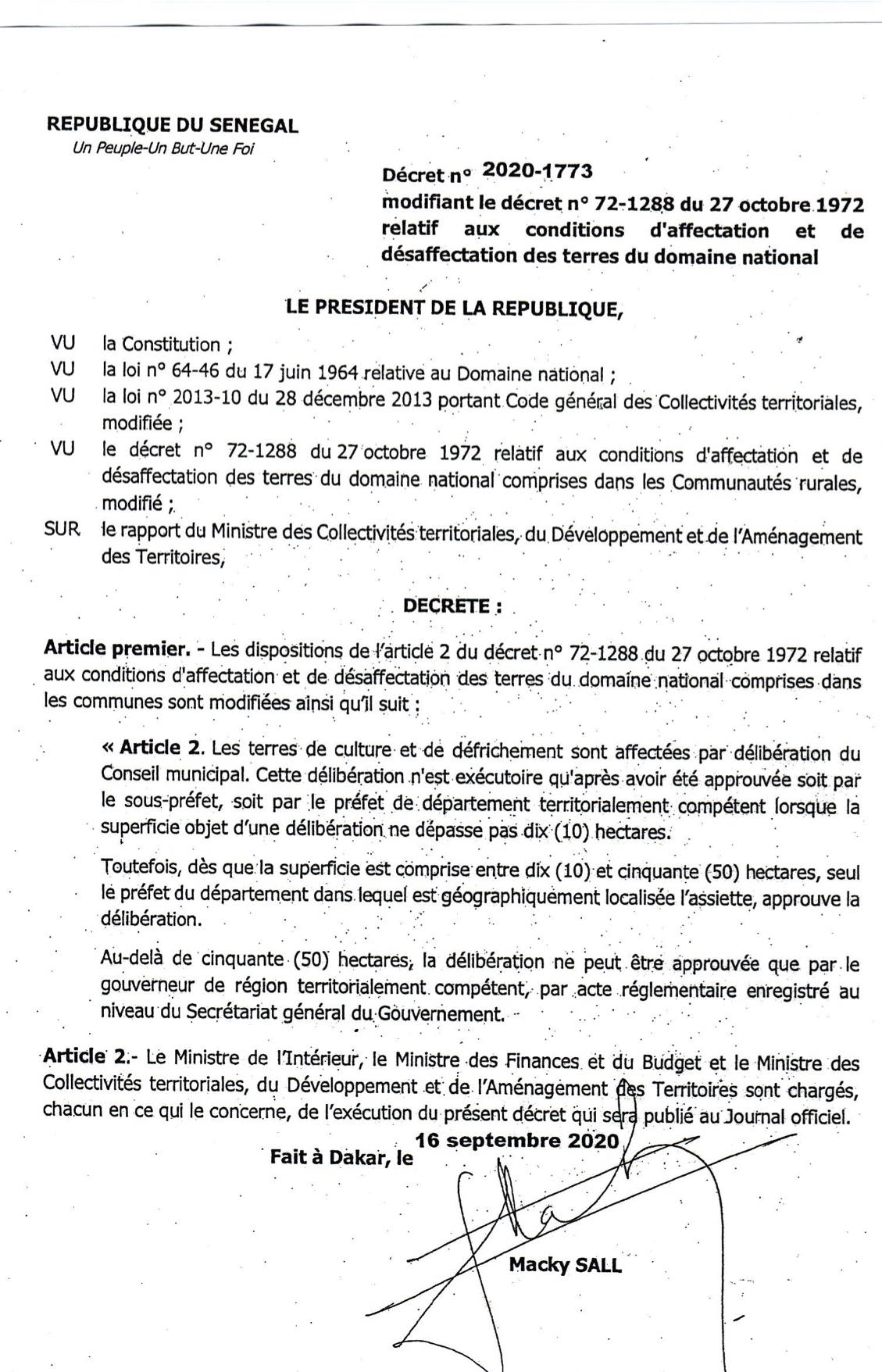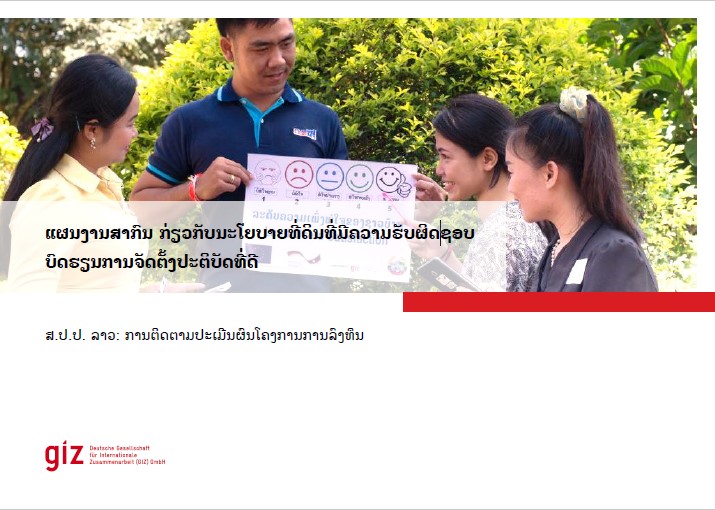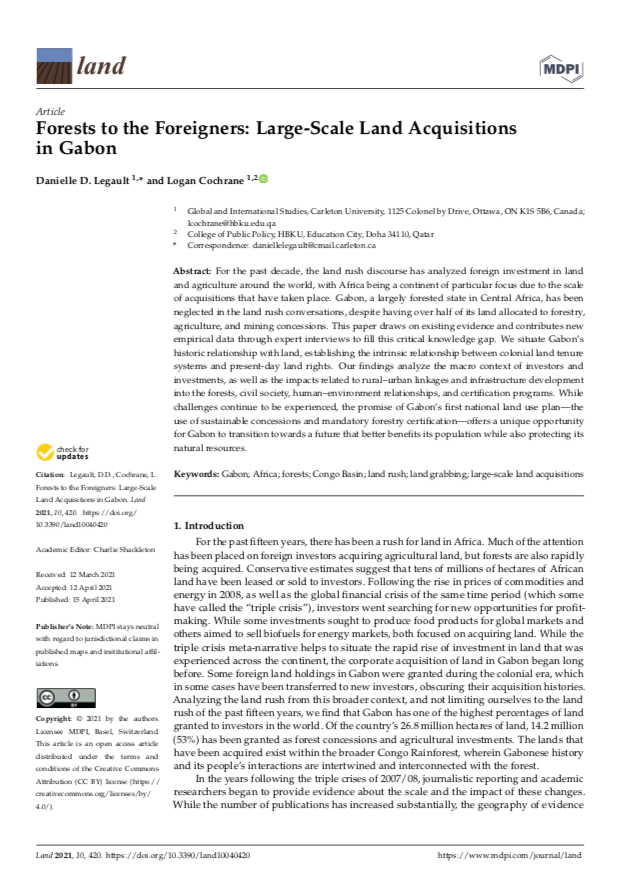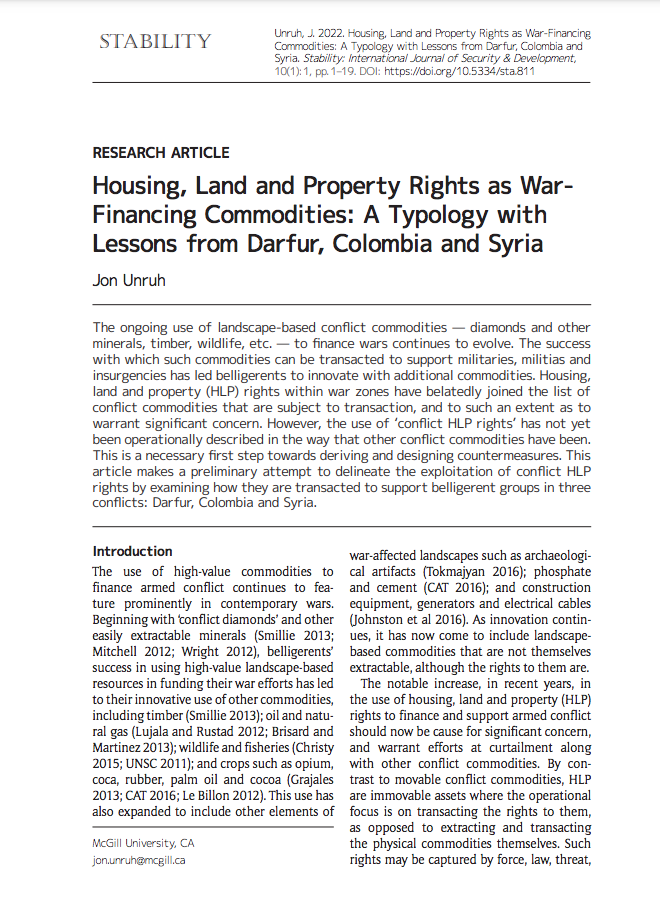For the past decade, the land rush discourse has analyzed foreign investment in land and agriculture around the world, with Africa being a continent of particular focus due to the scale of acquisitions that have taken place. Gabon, a largely forested state in Central Africa, has been neglected in the land rush conversations, despite having over half of its land allocated to forestry, agriculture, and mining concessions. This paper draws on existing evidence and contributes new empirical data through expert interviews to fill this critical knowledge gap.

